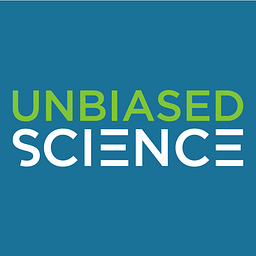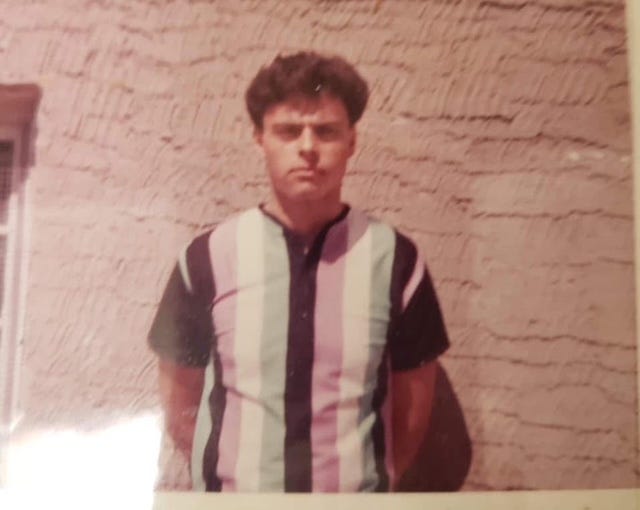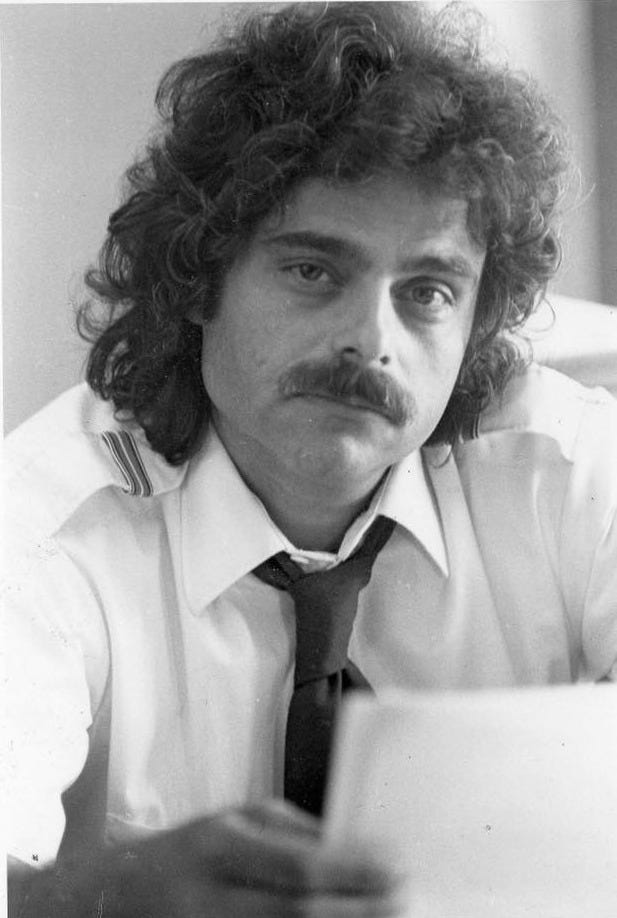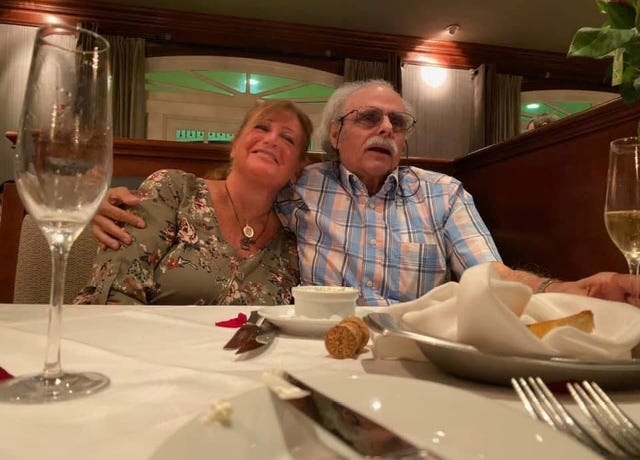Happy Birthday, Daddy
Description
Today would have been my father's 81st birthday—September 11th, a date forever etched in our collective memory. Twenty-four years ago, I wrote "happy birthday" in the dust on our living room TV screen. He came out of the bedroom in his suit and tie—always so handsome and professional—and kissed me on my keppie (Yiddish for forehead). He was in a rush to get out the door for work, his office in downtown Manhattan, a block or so from the Twin Towers.
I traced the trail of his Canoe aftershave—which he pronounced "Can-Oh-Ay" with a wink—to the hallway by our front door. He was making a pitstop to drop me off at school with my 10th-grade science diorama, and it made him late for work. We all know what happened that day. About an hour after my keppie kiss, the world changed forever.
The terror of not being able to reach my father by phone because no one could get cell service. Sobbing in my math class, comforted by my teacher, Mr. Osterman, who did his best to shield us from the fear and utter devastation that every New Yorker felt in their bones that morning. I eventually connected with my father and literally collapsed in my high school hallway the second I heard his voice say "I'm okay, baby" on the other end of the phone.
His birthday was never quite the same, intrinsically linked with the horrors of that fateful day. But it will always be my daddy's birthday. The day we'd go out to eat at one of his favorite restaurants and stop at Carvel for ice cream on the drive home. Sixteen years later, I reclaimed the day by telling my parents I was pregnant with my second child, Sophia—a birthday gift to my dad who worshipped the ground his grandchildren walked on. We were expanding our team. Celebrating life.
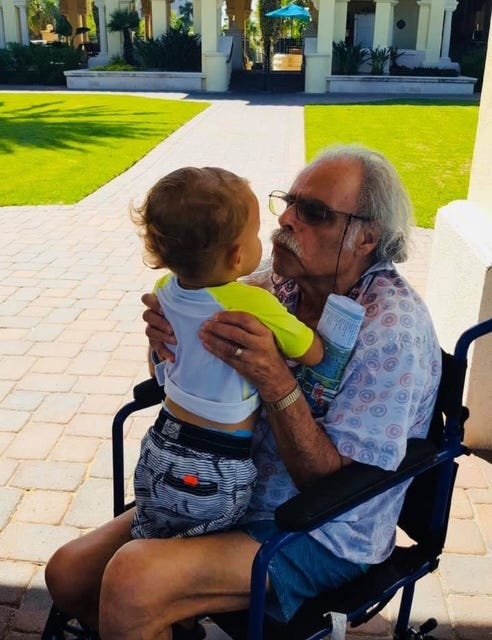
This is the sixth year I'm blowing out my dad's birthday candles for him.
Jeff Steier was a man of contradictions: a high school graduate who built a multi-million-dollar business then lost it all to gambling addiction, a Brooklyn tough guy who kissed his daughter's keppie every morning, a man who scoffed at academia yet raised a daughter who became a scientist. He wore his father's dogtags (a veteran who sold fruit at a stand) until the day he died. He remains my greatest inspiration for science communication, not despite these contradictions, but because of them.
My father was born and raised in south Brooklyn, the son of that fruit stand veteran and a homemaker named Esther—lovingly referred to as Esta—who I never met but who, I'm told, ruled the house and made a legendary noodle kugel. Dad got shuffled between schools for "bad behavior," received his high school diploma, and that was it for formal education. He despised when people "talked fancy" or pretentiously. Street smarts impressed him; straight talk was his language. And despite his lack of formal education, he remains the smartest man I have ever known. I mean this sincerely—I am not solely impressed by fancy credentials, and never have been. My father taught me that wisdom comes in many forms, and his was profound.
Somehow, he married my mother—a woman from "the other side of the tracks," the daughter of Polish and Czech immigrants who fled the Holocaust as sole survivors of their families. Her father was a physician, her mother a dentist. She was classically trained in piano and ballet, attended Juilliard and the Brooklyn Conservatory of Music. Their union was unlikely, improbable, and perfect.

